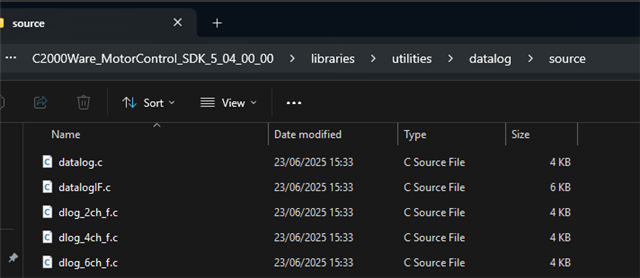Other Parts Discussed in Thread: C2000WARE
Tool/software:
Hi,
I am trying to use the datalog module to observe at the motor voltage and current values at run time and have managed to start with the example of below.
C:\ti\c2000\C2000Ware_MotorControl_SDK_5_04_00_00\solutions\universal_motorcontrol_lab\f28p65x\ccs\motor_control
I can see inside the datalogIF.c and datalogIF.h have the options to define symbol to use the 2-ch (DATALOGF2_EN) or 4-ch (DATALOGF4_EN) datalog with dma.
However, I would like ask if I can extend it to 6 channels given the f28p55x chip has 6 dma channels?
I am aware the motor control SDK has included 6-ch datalog source file and I would like to ask if there is any example showing how to use it please?
C:\ti\c2000\C2000Ware_MotorControl_SDK_5_04_00_00\libraries\utilities\datalog\source

Thanks!
Siu



